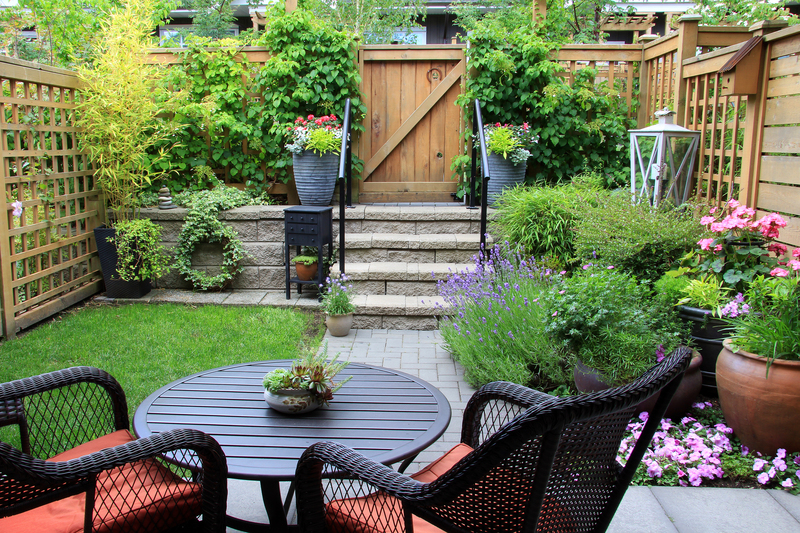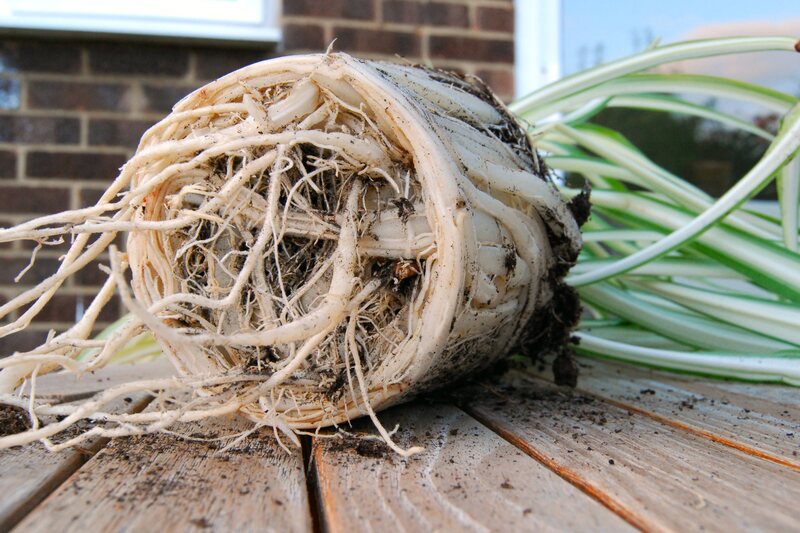Elevate Your Garden with These 3 Weed Tips
Posted on 09/06/2025
Elevate Your Garden with These 3 Weed Tips: The Ultimate Guide to a Thriving, Weed-Free Garden
A flourishing garden doesn't just happen -- it requires attentive care, regular maintenance, and smart strategies to control weeds. Whether you're a beginner or an experienced green thumb, understanding how to manage those pesky intruders can mean the difference between a thriving oasis and an unruly, struggling patch of dirt. In this comprehensive article, we'll share our top three weed management tips to help you elevate your garden, and dive deep into the why's and how's of keeping weeds under control in your beautiful green space.
Why It's Essential to Control Weeds in Your Garden
Weeds do far more harm than simply spoiling the appearance of your garden. Weeds compete with your plants for vital resources:
- Nutrients in the soil
- Sunlight
- Water
- Growing space

Top 3 Weed Tips to Elevate Your Garden
Let's explore the three most effective garden weed management techniques, complete with practical advice and expert insights.
Tip 1: Mulch Like a Pro to Smother Weeds
Mulching is a gardener's best friend when it comes to weed prevention. Not only does mulch suppress weed growth by blocking sunlight, but it also helps retain soil moisture, regulate temperature, and add organic matter to your garden as it breaks down.
-
Types of Mulch for Weed Control:
- Organic Mulch (wood chips, straw, compost, leaves, grass clippings)
- Inorganic Mulch (landscape fabric, gravel, black plastic sheeting)
How to Apply Mulch Effectively:
- Remove existing weeds and debris from the garden bed.
- Apply a thick layer (2 to 4 inches) of your chosen mulch material.
- Leave a small gap around plant stems to prevent rot.
- Replenish mulch as needed, especially after heavy rain or decomposition.
Mulching tips: Use organic mulch for vegetable and flower beds to enrich the soil as it decomposes. In hot, dry climates, apply a deeper layer, while in damper zones, use less to prevent fungal growth.
Tip 2: Regular Weeding - Timing Is Everything
It's no secret that regularly removing weeds prevents them from seeding and spreading, but did you know that the timing and method of weed removal can make a huge difference? Strategic weeding is a top gardening tip for keeping your outdoor space elevated and lush all season.
-
Best Time to Weed:
- After rainfall or watering - soil is softer, and roots pull up more easily
- Early morning or evening - helps avoid plant stress in the heat
- Regular intervals - every week or two, before weeds go to seed
How to Weed Effectively:
- Use a sharp hoe or hand tool to cut weeds at or just below the soil level.
- For deep-rooted weeds, pull gently but firmly to get the entire root.
- Dispose of weeds before they flower and set seed, preventing future outbreaks.
- Try weeding after a rain, or lightly water the area first for easier removal.
For small seedlings, simply scrape the soil surface. For taproot weeds like dandelions, use a weeding fork or specialized tool to dig out the roots. Staying consistent is key -- even just 10 minutes a day can revolutionize your garden's health and appearance!
Tip 3: Design an Eco-Friendly, Low-Weed Garden
A garden design that minimizes empty soil and uses dense planting techniques can naturally reduce weed problems. By filling available space with healthy, vigorous plants, you leave less room for weeds to take hold.
-
Strategies to Reduce Weeds through Design:
- Densely plant ground cover species, such as clover, creeping thyme, or sedum
- Inter-plant vegetables and flowers tightly where possible
- Use raised beds and containers to control soil quality and minimize weed seed introduction
- Establish living mulches (low-growing cover crops between rows or paths)
- Install border edging to block creeping weeds from lawns or neighboring properties
Dense planting shades the soil, making it difficult for weed seeds to germinate. Diversifying your plant beds with perennials, shrubs, and tall annuals creates a multi-layered canopy for superior weed suppression.
Bonus Tips: Extra Tricks to Keep Your Yard Weed-Free
The following tactics work in combination with our top 3 weed garden tips to further elevate your gardening game:
- Solarization -- Cover affected beds with clear plastic sheeting for several weeks during hot weather to kill weed seeds before planting.
- Hand-Picking -- Walk your garden frequently to spot and remove weeds while they're young and easy to manage.
- Pre-Emergent Herbicides -- Use an organic or chemical pre-emergent product in early spring to prevent weed seeds from sprouting. Always follow directions carefully.
- Layer Newsprint or Cardboard -- Under mulch, these *biodegradable barriers* block light and further prevent weed growth.
- Compost Carefully -- Avoid adding mature weed seeds or runners to your compost pile to prevent them from returning to your beds.
Common Weeds and How to Identify Them
Knowing your enemy is half the battle! Here are some of the most common garden weeds and how to recognize them so you can act quickly:
- Dandelion (Taraxacum officinale): Bright yellow flowers, jagged leaves, deep taproot -- spreads easily via windblown seeds.
- Bindweed (Convolvulus arvensis): Twining stems and funnel-shaped white or pink flowers, invades and strangles garden plants.
- Crabgrass (Digitaria spp.): Annual grass with fingerlike seed heads, invades lawns and beds in hot weather.
- Chickweed (Stellaria media): Low-growing, small white star flowers, thrives in cool moist soil, prolific seeder.
- Thistle (Cirsium spp.): Spiny leaves, purple flowers -- deep-rooted and tough to eradicate.
*Early identification* and removal prevents these weeds from overtaking your garden beds.

Frequently Asked Questions About Weed Management
Are Weeds Ever Beneficial for My Garden?
Some weeds can improve soil structure or attract pollinators, but, in general, weeds compete for nutrients and space. If you want certain plants for ecological benefits, try planting controlled cover crops or "green manure" plants instead.
Should I Use Chemical Herbicides?
While herbicides are effective for severe infestations or tough perennial weeds, organic and manual methods are safest for children, pets, and the environment. Always follow label instructions and protect nearby desirable plants.
How Can I Prevent Weeds Next Year?
Most weed seeds live for several years in soil. Prevent next year's weeds by:
- Applying mulch in fall and spring
- Never letting weeds go to seed
- Rotating plant beds each year
- Using pre-emergent products in early spring
Is Hand Weeding Really Worth the Effort?
Absolutely -- routine hand weeding is one of the most effective (and satisfying) ways to elevate your garden. It gets easier as you stay on top of it, and best of all, *no chemicals required*.
Final Thoughts: Elevating Your Garden with Smart Weed Management
A little forethought and the right techniques can revolutionize your garden. Mastering weed management not only keeps your flowers vibrant and your vegetables productive, but fills your yard with beauty and peace of mind. Mulch smartly, weed regularly, and design your space to smother weeds before they start -- these three tips will help you elevate your gardening skills and create the lush, thriving garden you've always dreamed of.
Start with these proven steps today and watch as your garden transforms into a showplace, season after season!
Share Your Weed Control Wins!
Do you have your own weed prevention tips or before-and-after gardening stories? Share your experience below and help others elevate their gardens to new heights!
If you're looking for more expert gardening advice, bookmark this guide and check back for fresh seasonal techniques -- happy weeding!
Latest Posts
Shielding Your Garden from Excessive Wind Blasts
Harnessing Heights for Horticulture: Vertical Gardens
Container gardening: Growing bounties in limited spaces
Blissful Backyards: Unlock the Secrets to Stunning Garden Seating Areas

